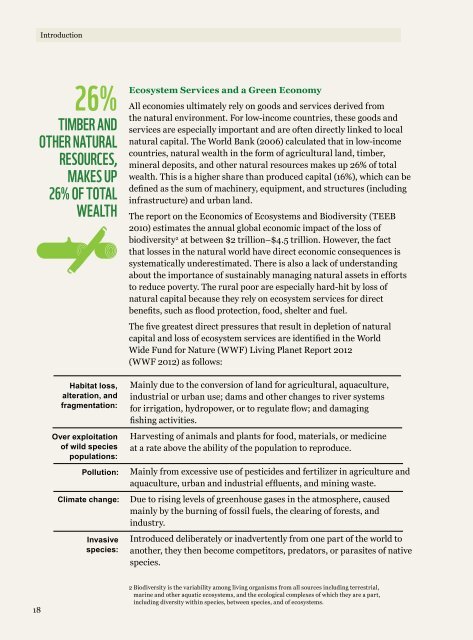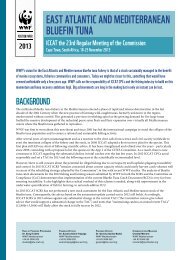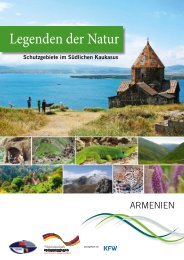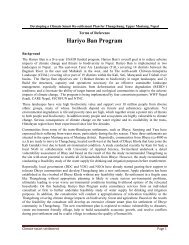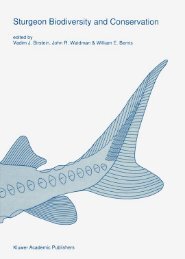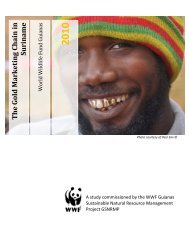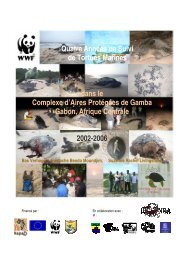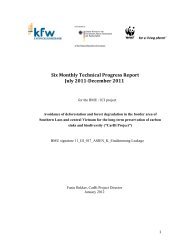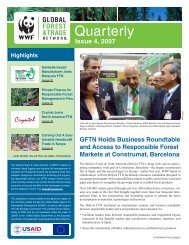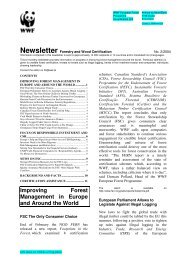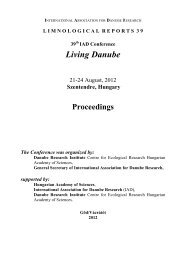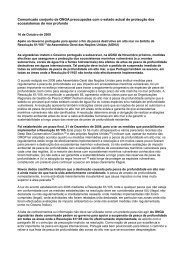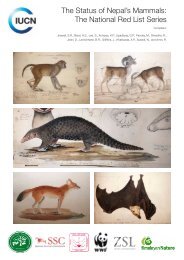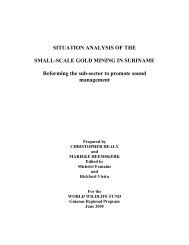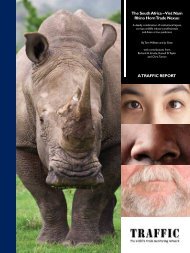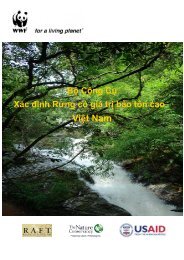Download the pdf - Global Footprint Network
Download the pdf - Global Footprint Network
Download the pdf - Global Footprint Network
Create successful ePaper yourself
Turn your PDF publications into a flip-book with our unique Google optimized e-Paper software.
18<br />
Introduction<br />
26%<br />
tIMBeR AnD<br />
o<strong>the</strong>R nAtuRAL<br />
ResouRCes,<br />
MAkes uP<br />
26% oF totAL<br />
WeALth<br />
Habitat loss,<br />
alteration, and<br />
fragmentation:<br />
Over exploitation<br />
of wild species<br />
populations:<br />
Pollution:<br />
Climate change:<br />
Invasive<br />
species:<br />
Ecosystem Services and a Green Economy<br />
All economies ultimately rely on goods and services derived from<br />
<strong>the</strong> natural environment. For low-income countries, <strong>the</strong>se goods and<br />
services are especially important and are often directly linked to local<br />
natural capital. The World Bank (2006) calculated that in low-income<br />
countries, natural wealth in <strong>the</strong> form of agricultural land, timber,<br />
mineral deposits, and o<strong>the</strong>r natural resources makes up 26% of total<br />
wealth. This is a higher share than produced capital (16%), which can be<br />
defined as <strong>the</strong> sum of machinery, equipment, and structures (including<br />
infrastructure) and urban land.<br />
The report on <strong>the</strong> Economics of Ecosystems and Biodiversity (TEEB<br />
2010) estimates <strong>the</strong> annual global economic impact of <strong>the</strong> loss of<br />
biodiversity2 at between $2 trillion–$4.5 trillion. However, <strong>the</strong> fact<br />
that losses in <strong>the</strong> natural world have direct economic consequences is<br />
systematically underestimated. There is also a lack of understanding<br />
about <strong>the</strong> importance of sustainably managing natural assets in efforts<br />
to reduce poverty. The rural poor are especially hard-hit by loss of<br />
natural capital because <strong>the</strong>y rely on ecosystem services for direct<br />
benefits, such as flood protection, food, shelter and fuel.<br />
The five greatest direct pressures that result in depletion of natural<br />
capital and loss of ecosystem services are identified in <strong>the</strong> World<br />
Wide Fund for Nature (WWF) Living Planet Report 2012<br />
(WWF 2012) as follows:<br />
Mainly due to <strong>the</strong> conversion of land for agricultural, aquaculture,<br />
industrial or urban use; dams and o<strong>the</strong>r changes to river systems<br />
for irrigation, hydropower, or to regulate flow; and damaging<br />
fishing activities.<br />
Harvesting of animals and plants for food, materials, or medicine<br />
at a rate above <strong>the</strong> ability of <strong>the</strong> population to reproduce.<br />
Mainly from excessive use of pesticides and fertilizer in agriculture and<br />
aquaculture, urban and industrial effluents, and mining waste.<br />
Due to rising levels of greenhouse gases in <strong>the</strong> atmosphere, caused<br />
mainly by <strong>the</strong> burning of fossil fuels, <strong>the</strong> clearing of forests, and<br />
industry.<br />
Introduced deliberately or inadvertently from one part of <strong>the</strong> world to<br />
ano<strong>the</strong>r, <strong>the</strong>y <strong>the</strong>n become competitors, predators, or parasites of native<br />
species.<br />
2 Biodiversity is <strong>the</strong> variability among living organisms from all sources including terrestrial,<br />
marine and o<strong>the</strong>r aquatic ecosystems, and <strong>the</strong> ecological complexes of which <strong>the</strong>y are a part,<br />
including diversity within species, between species, and of ecosystems.


